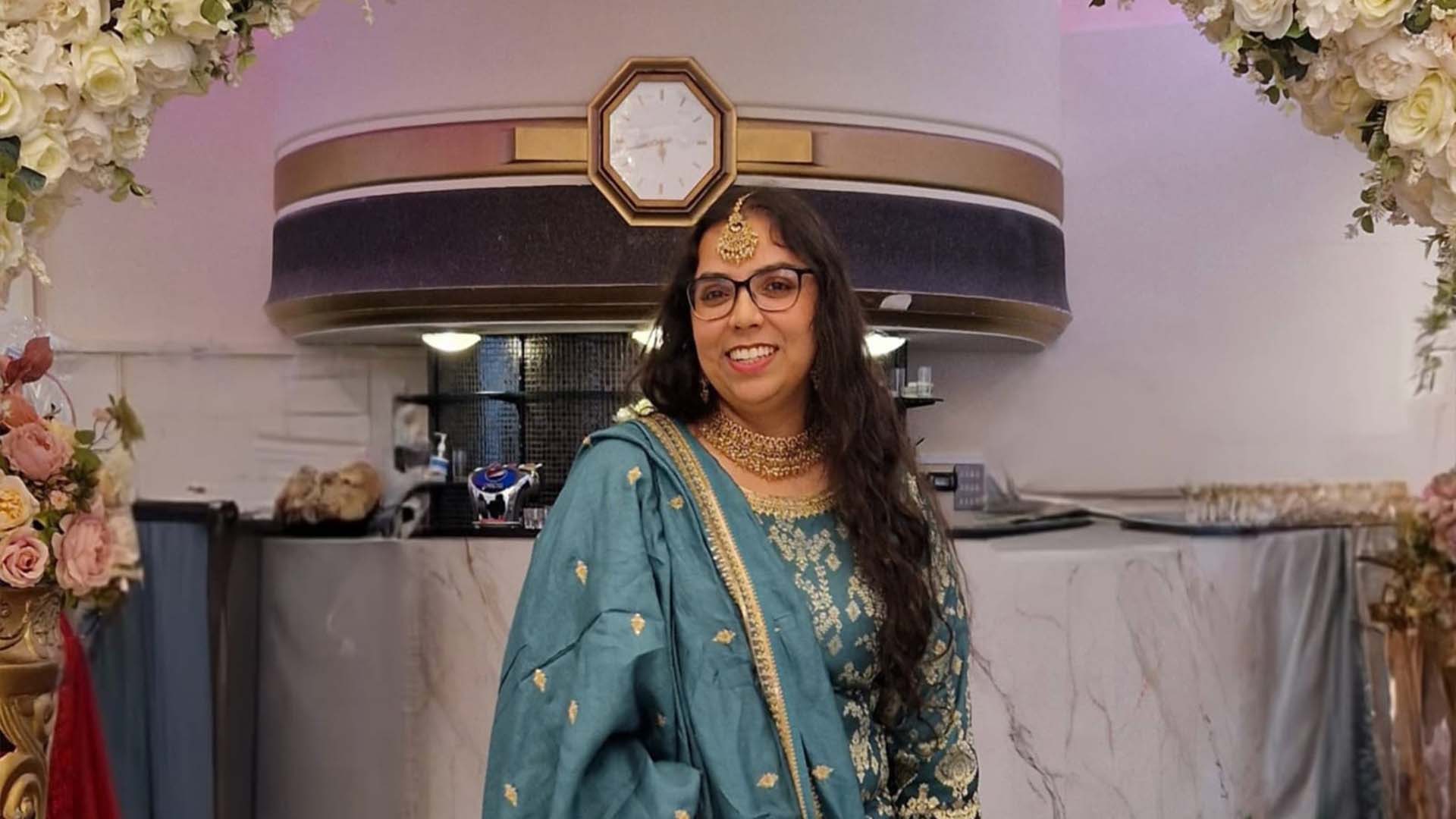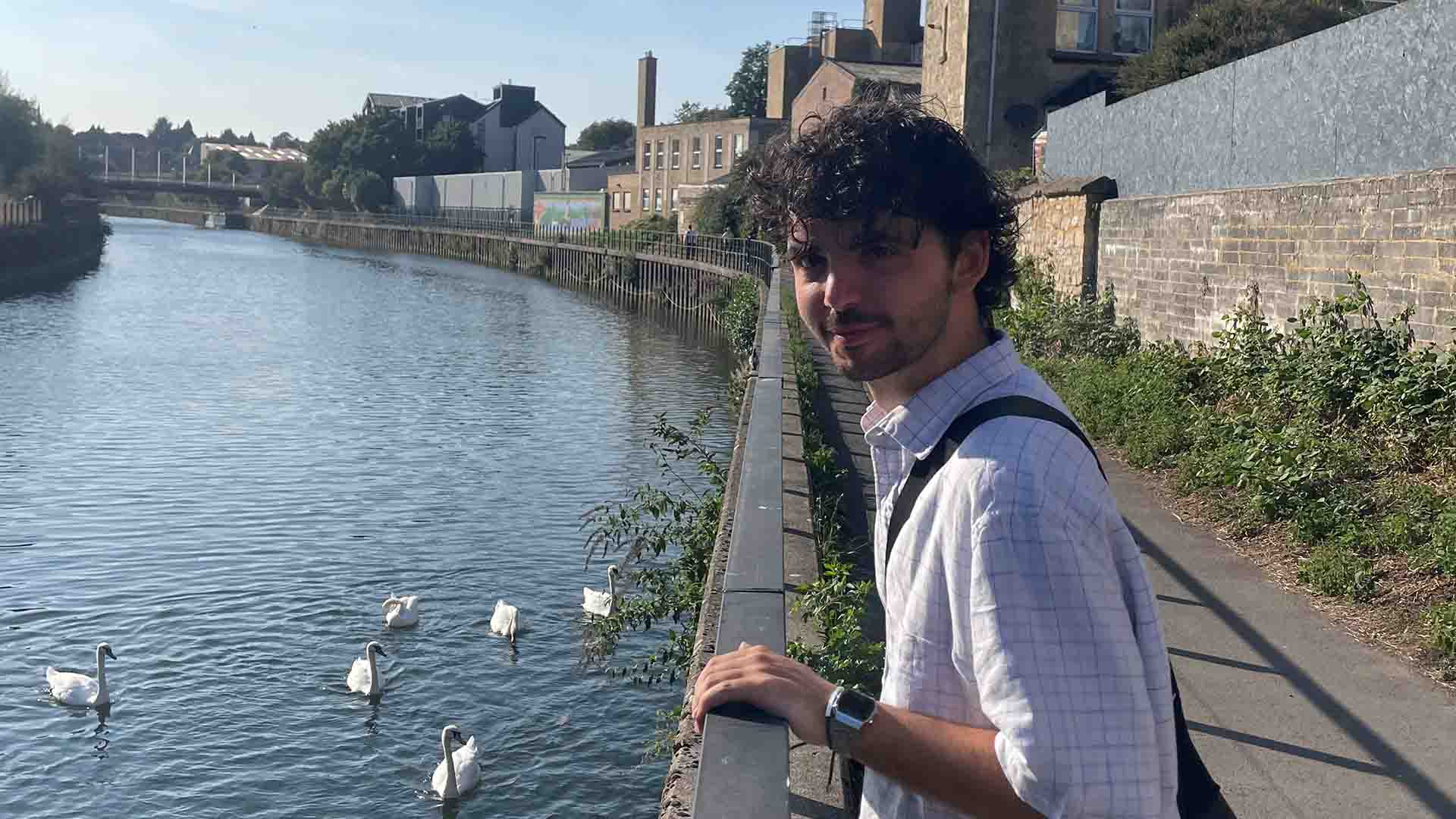
Intercalation is a great way to develop knowledge and skills and make a significant investment in your future career prospects. Financial considerations can be a deciding factor as to whether you take up this opportunity, but there are a number of different funding opportunities available to support you.
From external schemes and bursaries to endowments and even a Graduate Loyalty initiative, offering an automatic £1500 tuition fee discount for students choosing a masters or MRes here at Liverpool – it's worth looking into the variety of options on offer. The School of Medicine has once again this year provided student doctors with a £5000 fee waiver scholarship towards their intercalated degree. Zoha and Seb are two of this year’s recipients.
Zoha Imtiaz
MRes Clinical Sciences
I decided to intercalate primarily because I'm uncertain about my long-term career path. I'm still exploring what I want to pursue and, more fundamentally, whether I want to work full-time clinically or incorporate academia into my career. I felt it was important to gain genuine experience in the academic world before making such a big decision.
The MRes in Clinical Sciences offers exactly the exposure I'm looking for: providing a solid grounding in research fundamentals while allowing me to immerse myself in the academic environment, network with established researchers, and learn from their experiences navigating the balance between clinical practice and research. Although it's an investment in my future career, it's also a chance for me to take a bit of a breather and experience life outside of medicine!
I'll be working on a project investigating Cerebral Visual Impairment (CVI), which is the leading cause of childhood visual impairment in the UK.
Specifically, I'll be looking at whether non-invasive retinal imaging can identify changes in the eye's nerve and ganglion cell layers that correspond with brain abnormalities seen on MRI.
Essentially, the goal is to determine whether this non-invasive imaging could serve as a more accessible diagnostic tool for detecting CVI in children, potentially reducing the need for general anaesthesia and complex neuroimaging.
The intercalation team were incredibly supportive with all my questions, from courses available and funding options (including figuring out the dreaded Student Finance England bits and bobs!) to helping me reach out to graduates from the course for their advice and experience.
Finance played a big role in my decision to intercalate. Although I was certain I wanted to do the MRes, I was going in with the fact that this is a big financial commitment to make. I'm extremely grateful to the School of Medicine for offering me a scholarship - it's taken a huge burden off my shoulders and genuinely made it possible for me to enjoy the year without the heavy stress of funding.
My top tip would be to make full use of the intercalation team, explore all funding opportunities available to you, and don’t be afraid to have honest conversations about the financial side of things. There may be more support available than you initially think.
Final word: Don't say yes or no straightaway. Take the time to explore what courses are on offer and accessible to you, see if they align with your future career path (whether that ends up being medicine or not!), and determine whether the extra degree will add value - not only career-wise but also in terms of life experience. It's a big decision, so give yourself the space to make an informed one.

Intercalating Student Doctor Seb Tejeiro-Mason
Seb Tejeiro-Mason
MRes in Clinical Sciences
As a third-year medical student, I found it challenging to balance my studies alongside trying to find research projects as well as exploring my interests in various specialties. It felt like an overwhelming task to complete all alongside placement and busy academic weeks. I chose the MRes in Clinical Sciences programme as I felt that it will help me do research in a specialty I am interested in, equip me with the skills needed to undertake research and connect me with a network of clinicians.
My research is based at Liverpool Women’s Hospital and explores long-term outcomes from complex pregnancies. I am really looking forward to carrying out my own unique research project in a topic I am interested in and hopefully learning lots of new skills along the way.
I felt like it was a very big and important decision to make because there are so many factors to take into consideration. I would definitely recommend taking your time and thoroughly exploring different courses and what each will mean for funding. Any School intercalation events are really useful for this.
I also found it useful to contact the University student fees team to see what funding options would be open to me here in Liverpool.
Speaking to other students who were currently intercalating or who had previously gave me a really good insight into what to actually expect.
Final word: Take your time to explore the different intercalation options and definitely talk to students who have intercalated to get their insight to help you make a decision!
Discover more
- A number of School scholarships, to the value of £5000 in the form of fee waivers, are available for certain intercalation programmes at the University of Liverpool to students who fulfil certain Widening Participation criteria. See School of Medicine Scholarship Awards on the student intranet for full details.
- Information on other bursaries and scholarships available to support your intercalated degree is available on Awards and Scholarships, while Intercalation funding can help answer your questions on financing your intercalated year.
- The Intercalation team are excellent at offering advice and putting you in touch with the right people, academics and students, who can share more on your options. Contact them at intercal.mbchb@liverpool.ac.uk.